Introduction
Marketing automation has become an indispensable tool for businesses of all sizes, revolutionizing the way companies engage with their customers and streamline their marketing efforts. Recent statistics underscore the growing importance of marketing automation, with a report by Grand View Research (2023) projecting the global marketing automation market to reach $8.42 billion by 2027, growing at a CAGR of 9.8%.
From AI marketing automation to B2B marketing automation, the applications are vast and varied. According to a study by Salesforce (2024), 67% of marketing leaders rely on marketing automation platforms, with this number expected to grow. For small businesses, marketing automation for small business solutions has opened up new possibilities, allowing them to compete with larger corporations on a more level playing field.
One of the most popular examples of marketing automation is the use of chatbots for marketing. A survey by Drift (2023) found that 58% of B2B companies use chatbots on their websites, highlighting the growing adoption of this technology.
As we explore the top 10 examples of marketing automation in action, we'll see how these tools are transforming customer engagement, lead nurturing, and overall marketing efficiency across various industries and business sizes.
The Importance of Marketing Automation
Marketing automation has become a necessity rather than a choice. Businesses of all sizes are embracing the power of AI marketing automation to reach their target audience more effectively. Understanding the benefits of marketing automation and how it works is crucial for any business.
Benefits of Marketing Automation
Marketing Automation streamlines repetitive tasks, nurtures leads, and provides valuable insights for improved decision-making. With marketing automation for small businesses, companies can scale their marketing efforts without the need for additional manpower.
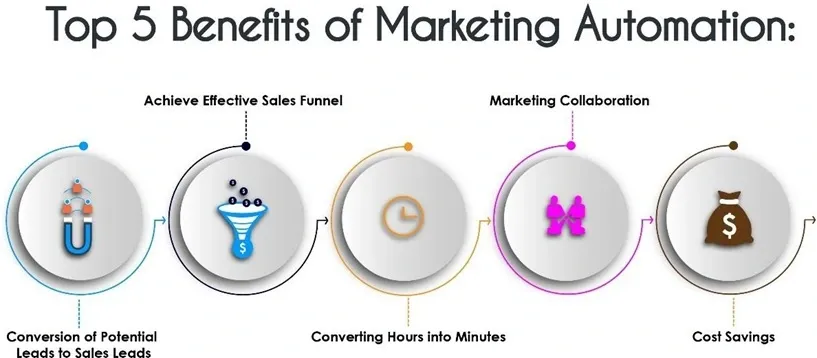
Moreover, B2B marketing automation provides a strategic approach to engaging and converting high-value business clients, ultimately boosting revenue and growth. By leveraging technologies such as chatbot for marketing, businesses can enhance customer interactions and satisfaction, propelling their marketing efforts to new heights.
How Marketing Automation Works
At its core, marketing automation utilizes software platforms to automate and track various marketing activities, such as email marketing, social media posting, and campaign management.
These platforms enable businesses to segment their audience, personalize messaging, and analyze performance metrics, leading to more targeted and effective marketing strategies. By incorporating AI marketing automation, businesses can optimize their marketing efforts by leveraging predictive analytics and smart algorithms to deliver personalized and timely content to their audience.
Top 10 Examples of Marketing Automation in Action
Businesses are leveraging marketing automation to streamline operations, enhance customer engagement, and drive revenue growth.
Let's explore examples of marketing automation that illustrate the powerful impact of automation in marketing.
Examples of Marketing Automation 1: Email Marketing Automation
Email marketing automation is one of the main examples of marketing automation:
Personalized Email Campaigns: Using AI marketing automation, businesses can create highly personalized email campaigns tailored to individual recipients. By analyzing customer data, preferences, and behavior, businesses can deliver targeted messages that resonate with their audience, boosting open and click-through rates.
Automated Email Sequences: Automated email sequences allow businesses to nurture leads strategically. Through intelligent triggers and dynamic content, businesses can automate the delivery of relevant emails based on customer actions or milestones, ensuring timely and effective communication throughout the buyer's journey.
Email Drip Campaigns: Drip campaigns enable businesses to deliver a series of pre-planned, automated emails to engage and nurture leads over time. By providing valuable content and incentives, businesses can move prospects closer to conversion without manual intervention, saving time and resources.
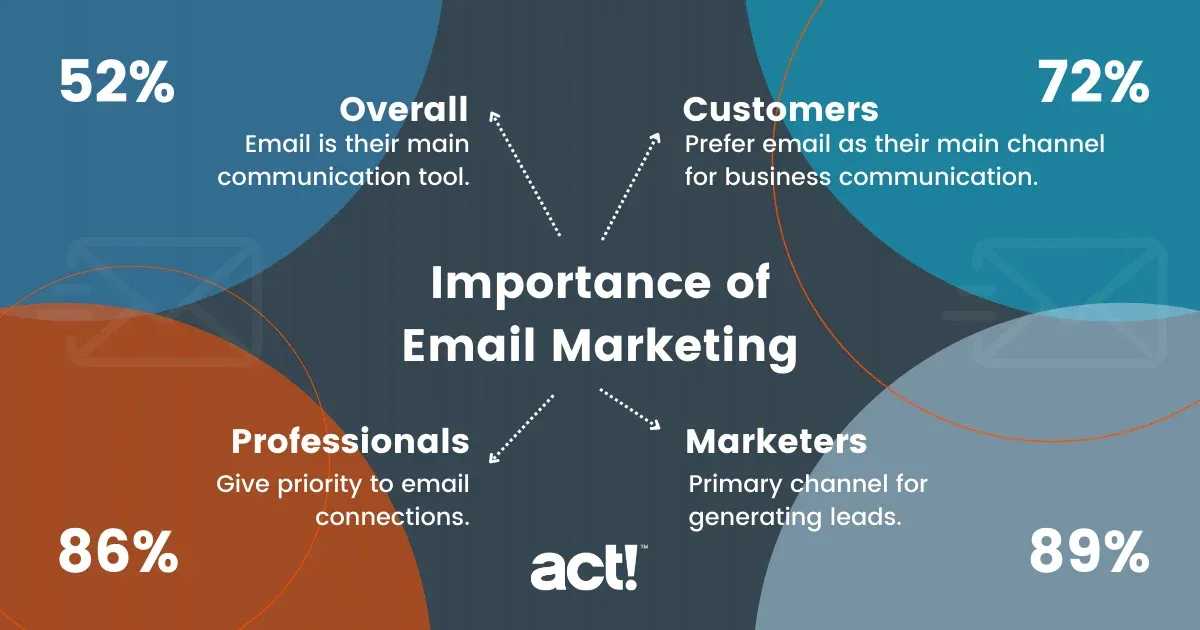
Examples of Marketing Automation 2: Lead Scoring and Nurturing
Lead scoring and nurturing is one of the key examples of marketing automation:
Identifying High-Quality Leads: With B2B marketing automation, businesses can implement lead scoring models that assign values to leads based on various criteria, such as demographic data, engagement level, and behavior. This allows businesses to prioritize and focus their efforts on high-quality leads most likely to convert, enhancing efficiency and ROI.
Tailored Content Delivery: Once high-quality leads are identified, businesses can leverage marketing automation to deliver personalized content that addresses specific pain points and aligns with the lead's stage in the buyer's journey. By nurturing leads with relevant information, businesses can build trust and credibility, increasing the likelihood of conversion.
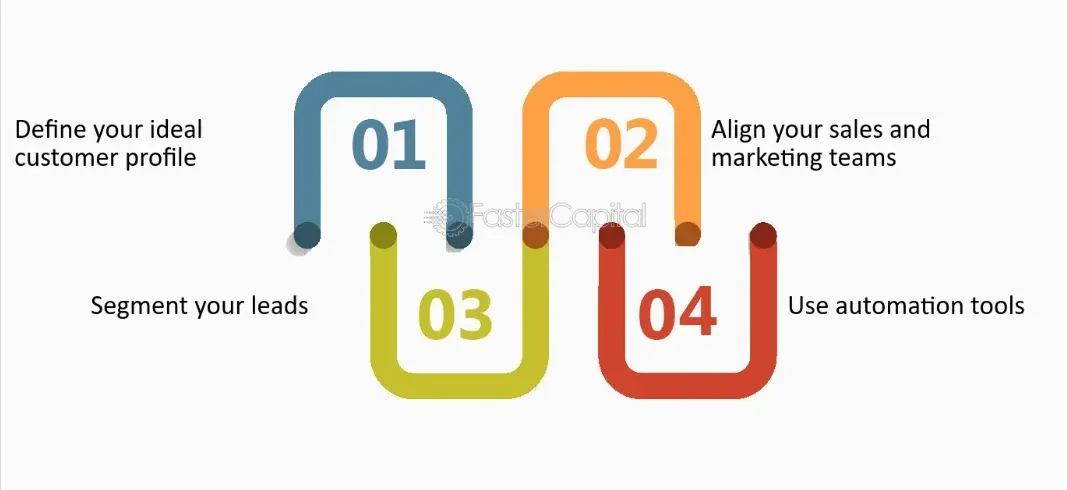
Examples of Marketing Automation 3: Social Media Automation
Social media automation is one of the main examples of marketing automation:
Automated Posting: Marketing automation for small businesses shines through social media automation. With tools like scheduling platforms, businesses can plan and schedule social media posts in advance, ensuring consistent and timely content delivery. This allows businesses to maintain an active presence on various platforms without constant manual effort.
Social Listening and Engagement: Automation tools enable businesses to monitor social media channels for mentions, keywords, or hashtags relevant to their brand. By automating this process, businesses can identify opportunities for engagement, respond promptly to customer inquiries or comments, and proactively manage their online reputation.
Examples of Marketing Automation 4: Customer Relationship Management (CRM) Automation
CRM automation is one of the key examples of marketing automation:
Lead Management: CRM automation streamlines lead management by automating lead capture, tracking, and segmentation. By integrating marketing automation platforms with CRM systems, businesses can capture lead information seamlessly, track interactions, and automatically assign leads to respective sales teams, ensuring efficient and effective lead management.
Sales Process Automation: Automation can also optimize the sales process by automating repetitive tasks, such as sending follow-up emails, updating contact information, or scheduling appointments. This automation allows sales teams to focus on building relationships and closing deals, improving productivity and overall sales performance.
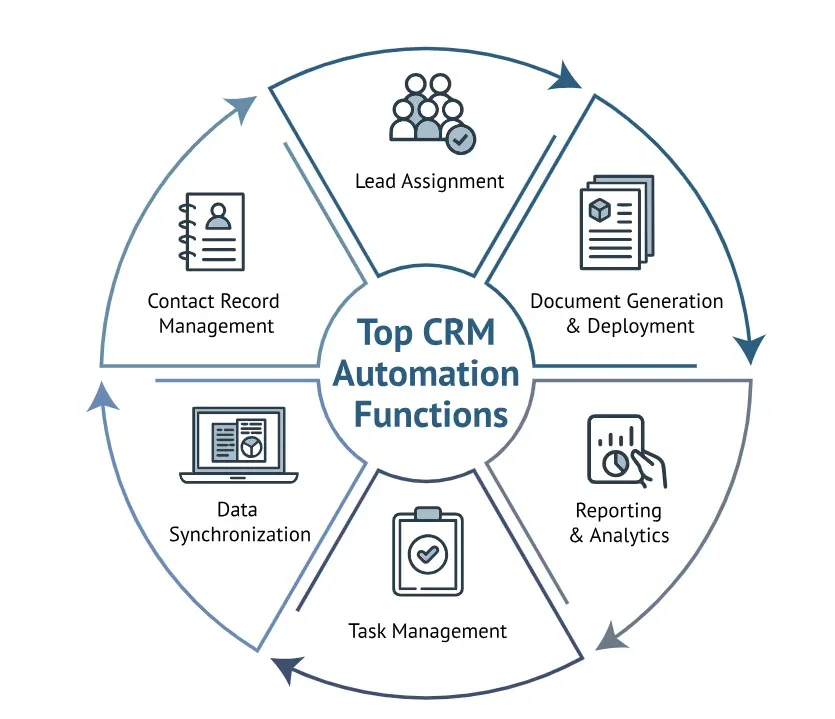
Examples of Marketing Automation 5: Marketing Automation for E-commerce
The e-commerce sector is one of the primary beneficiaries of marketing automation, utilizing advanced tools and technologies to enhance customer experiences and drive sales.
Here are three key applications of marketing automation in e-commerce:
Personalized Product Recommendations: E-commerce businesses leverage AI marketing automation to deliver personalized product recommendations to customers based on their browsing behavior, purchase history, and preferences. This tailored approach enhances cross-selling and upselling opportunities, ultimately leading to increased revenue and improved customer satisfaction.
Cart Abandonment Recovery: Cart abandonment is a common challenge for online retailers. Through automation, businesses can implement cart abandonment recovery campaigns that automatically remind customers of items left in their cart and incentivize them to complete the purchase. This targeted approach helps increase conversion rates and recover potentially lost sales.
Customer Retention Programs: Automation enables e-commerce businesses to implement customer retention programs that engage customers with personalized content, exclusive offers, and exceptional service. By nurturing existing customers and fostering loyalty, businesses can boost customer retention rates and turn one-time buyers into loyal advocates.
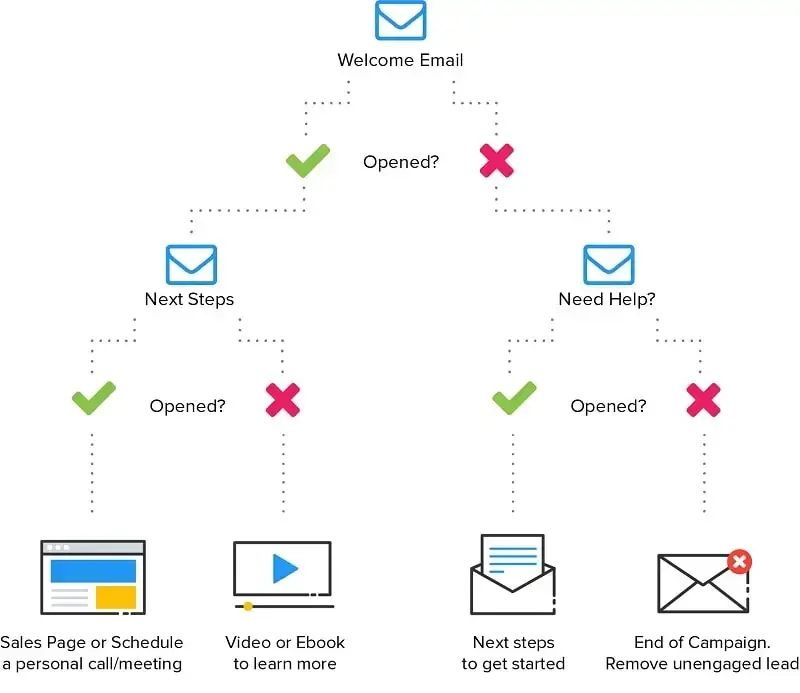
Examples of Marketing Automation 6: Content Marketing Automation
Content marketing plays a crucial role in engaging audiences and driving brand awareness. Automation technology offers various benefits to businesses looking to optimize their content strategies.
Here are two key applications of content marketing automation:
Suggested Reading:Top 10 Benefits of Marketing Automation in 2024
Automated Content Distribution: Automation simplifies the process of content distribution by automatically sharing content across multiple channels, including social media, email campaigns, and blogs. This ensures consistent and timely delivery of content to the target audience, saving time and resources while maximizing the reach and impact of the content.
Content Personalization: By leveraging automation tools powered by AI and machine learning, businesses can deliver personalized content that resonates with individual preferences and behavior. Personalized content boosts engagement levels and conversion rates, as it speaks directly to the needs and interests of the audience, creating a more meaningful connection with the brand.
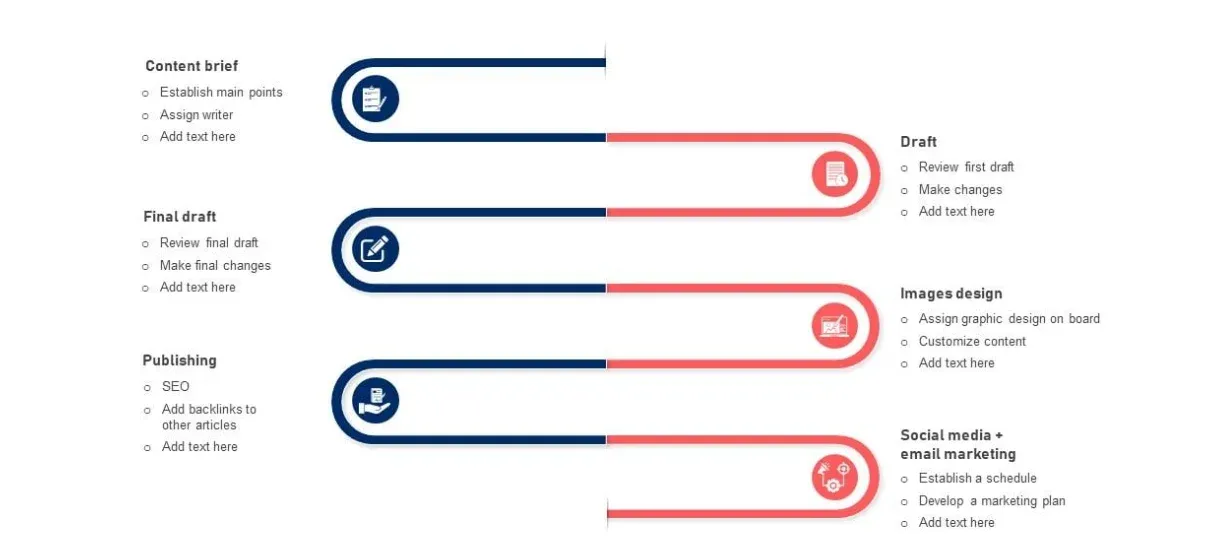
Examples of Marketing Automation 7: Lead Generation Automation
Effective lead generation is crucial for business growth, and automation plays a significant role in optimizing lead generation processes.
Here are two key applications of lead generation automation:
Landing Page Optimization: Landing pages are essential for capturing leads and driving conversions. Automation tools help businesses optimize their landing pages by testing different versions, analyzing performance data, and implementing targeted messaging to improve conversion rates and lead quality.
Webinar Automation: Webinars have emerged as an effective lead generation tool, allowing businesses to engage prospects through interactive and informative sessions. Automation streamlines the webinar process by handling tasks such as registration, reminders, and follow-up emails, ensuring a seamless experience for attendees and maximizing the impact of the webinar on lead generation efforts.
Examples of Marketing Automation 8: Sales Enablement Automation
Sales teams can benefit greatly from automation tools that streamline processes and enhance productivity.
Here are two key applications of sales enablement automation:
Sales Collateral Management: Automation simplifies the management of sales collateral by providing sales representatives easy access to up-to-date and relevant materials such as product brochures, case studies, and FAQs. This ensures that sales teams have the necessary resources at their fingertips, enabling them to engage effectively with prospects and close deals more efficiently.
Sales Activity Tracking: Automation tools help businesses track and analyze sales activities, such as calls, emails, and meetings. By capturing and analyzing data on sales interactions, businesses can identify trends, areas for improvement, and new opportunities, empowering sales teams to make data-driven decisions and enhance overall sales performance.
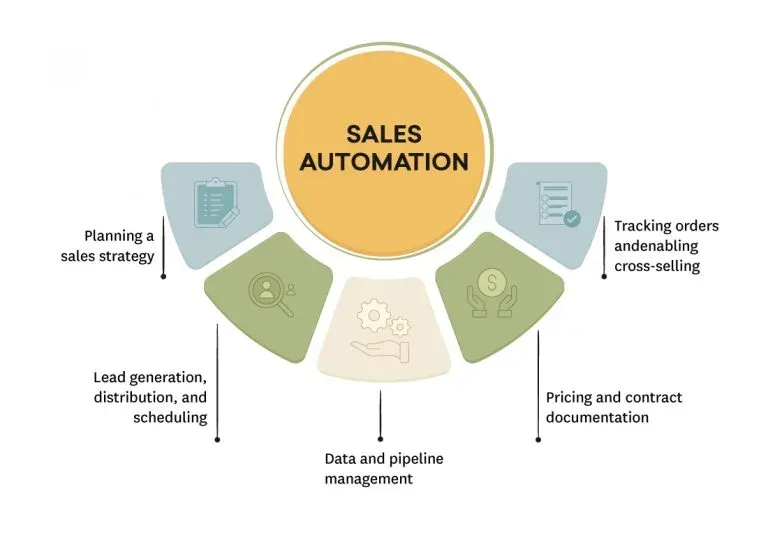
Examples of Marketing Automation 9: Customer Support Automation
Enhancing customer support through automation is a strategic move for businesses seeking to deliver seamless and personalized experiences.
Here are two key applications of customer support automation:
Suggested Reading:SMS Marketing Automation: Stats, Benefits & Tips
Chatbots and Live Chat: Utilizing chatbot for marketing and live chat functionalities powered by AI marketing automation enables businesses to offer real-time assistance to customers, addressing queries and providing support around the clock. Chatbots can handle routine inquiries, while live chat allows for more personalized interaction, improving overall customer satisfaction.
Automated Email Responses: Automation technology enables businesses to set up automated email responses for common customer queries and requests. By providing timely and relevant information through automated emails, businesses can enhance efficiency, resolve issues promptly, and maintain high levels of customer satisfaction.
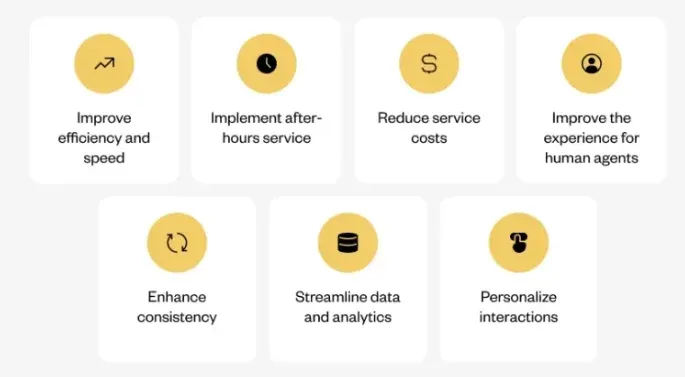
Examples of Marketing Automation 10: Marketing Analytics and Reporting Automation
Data-driven decision-making is essential for the success of any marketing strategy, and automation plays a vital role in simplifying the process of data collection and analysis.
Here are two key applications of marketing analytics and reporting automation:
Automated Data Collection: Businesses can leverage automation tools to collect and consolidate data from various sources, including website analytics, social media platforms, and customer interactions. By automating data collection processes, businesses can gain a comprehensive view of their marketing performance, enabling well-informed decision-making and strategy refinement.
Performance Analysis: Automation technology facilitates the analysis of marketing performance by generating reports and insights based on predefined KPIs and metrics. Automated performance analysis empowers businesses to evaluate the effectiveness of their marketing efforts, identify areas for improvement, and make data-driven adjustments to optimize overall performance.
Conclusion
In conclusion, these examples of marketing automation demonstrate the transformative power of technology in modern marketing strategies. From AI marketing automation enhancing personalization to B2B marketing automation streamlining complex sales processes, the benefits of examples of marketing automation are clear and substantial. Small businesses, in particular, can leverage marketing automation for small business solutions to compete more effectively.
Chatbots for marketing, as exemplified by platforms like BotPenguin, have emerged as a versatile tool in the marketing automation arsenal.
BotPenguin offers customizable chatbot solutions that can be integrated into various marketing automation strategies, enhancing customer engagement and lead generation.
As we've seen through these examples of marketing automation, marketing automation is not a one-size-fits-all solution. Whether it's email campaigns, social media management, or lead scoring, the key lies in choosing the right tools and strategies that align with your business goals.
By implementing these examples of marketing automation, companies can improve efficiency, enhance customer experiences, and drive better results.
Looking ahead, the future of marketing automation seems bright, with AI and machine learning poised to bring even more sophisticated capabilities.
As technology continues to evolve, staying informed about the latest examples of marketing automation and adapting them to your business needs will be important.
Frequently Asked Questions (FAQs)
What are some key applications of marketing automation in e-commerce?
Marketing automation in e-commerce includes personalized product recommendations, cart abandonment recovery campaigns, and customer retention programs to enhance customer experiences and drive sales.
How does marketing automation streamline lead generation processes?
Marketing automation optimizes lead generation through landing page optimization and webinar automation, improving conversion rates, lead quality, and overall business growth.
What role does automation play in sales enablement for sales teams?
Automation tools simplify sales collateral management and sales activity tracking, empowering sales teams to engage effectively with prospects, close deals efficiently, and enhance overall sales performance.
Why is customer support automation essential for businesses?
Customer support automation through chatbots and automated email responses enhances customer experiences by providing real-time assistance, resolving issues promptly, and maintaining high levels of customer satisfaction.
How does marketing analytics and reporting automation benefit businesses?
Automated data collection and performance analysis help businesses make data-driven decisions by generating reports and insights based on predefined KPIs and metrics, enabling them to optimize marketing strategies and improve overall performance.

